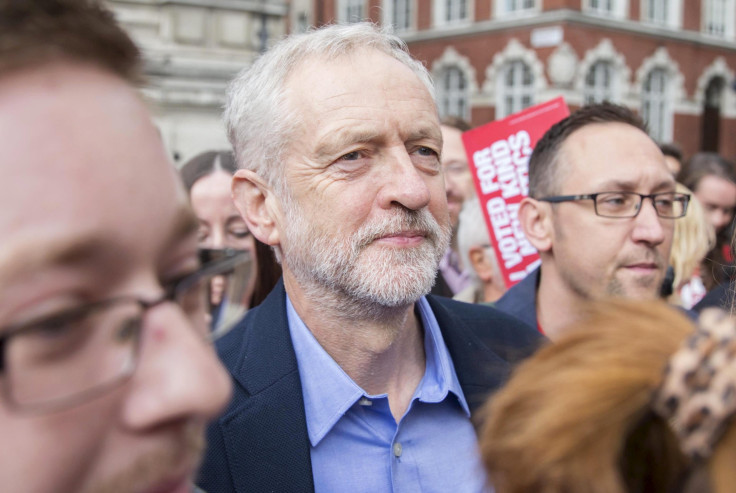Jeremy Corbyn Elected Leader Of UK Labour Party Amid Divisions, Concerns About Electability

Left-winger Jeremy Corbyn has won the leadership of the U.K's Labour party, the country's second-largest political party and principal opposition, after a fractious campaign that exposed deep divisions and raised questions about its electoral process, and future electability.
Corbyn won in the first round of the contest with 251,417 votes -- over 59 percent of the accepted votes cast -- beating Yvette Cooper, Andy Burnham and Liz Kendall to win the leadership. The result was widely expected, after Corbyn consistently led polls in the wake of the party's stunning defeat in May's general election. MP Tom Watson was elected to the position of deputy leader, with 198,962 votes.
Corbyn, the Member of Parliament (MP) for Islington North, is on the party's hard left, and his policy platform involves pledges to nationalize key industries, including energy and railways, as well as “people's quantitative easing,” a policy which would see social programs funded by the government printing money.
Many U.K. commentators and senior Labour party members had expressed deep concern about Corbyn's rise during the campaign, saying that while he appealed to elements of the party's base, he would be unable to find enough support among the wider electorate to ever lead the party to power. Some of the party grandees who nominated him said they did so because he would bring something to the debate, but did not think he stood a realistic chance of winning the party's leadership when they did so.
Former Labour prime minister Tony Blair has, in recent months, repeatedly cautioned the party against electing Corbyn, saying that those who felt their heart was with him should “get a transplant,” adding that Corbyn was unelectable, and that his platform would be bad for the U.K. Blair is the most successful leader in Labour's history, winning three straight elections between 1997 and 2005, but has become deeply unpopular in the party and the country over his role in bringing the U.K. into the Iraq war in 2003.
Labour experienced a crushing defeat in the U.K.'s general election in May of this year, to the surprise of many party strategists. The rise of the Scottish Nationalist Party (SNP) in the wake of last year's independence referendum, cost the party 40 seats, in what had previously been one of its electoral strongholds.
Corbyn's victory comes amid disquiet in the party about the process by which he was elected. This leadership election was the first to be held under a new system, in which any U.K. resident could register as a party supporter and vote in the election after paying a £3 ($4.63) registration fee.
During the campaign, some senior Labour members had suggested that supporters of other parties were registering with Labour in order to back Corbyn, who they saw as unelectable and a boon to their political ambitions. Thousands of registered party voters were barred from casting a ballot in the election over such concerns, the Guardian reported.
Many Labour supporters, including Corbyn, have argued the party fared so badly during the 2015 election because it did not offer a distinctive enough vision, only offering “austerity lite,” a mildly toned-down version of their conservative opponents' platform.
Blair and others in the party have argued, however, that the party's 2015 platform was seen as too anti-business and too far to the left. They have warned that Labour's record of fighting elections from the left is poor, and that the party must move to the center ground of British politics in order to regain power.
© Copyright IBTimes 2025. All rights reserved.





















